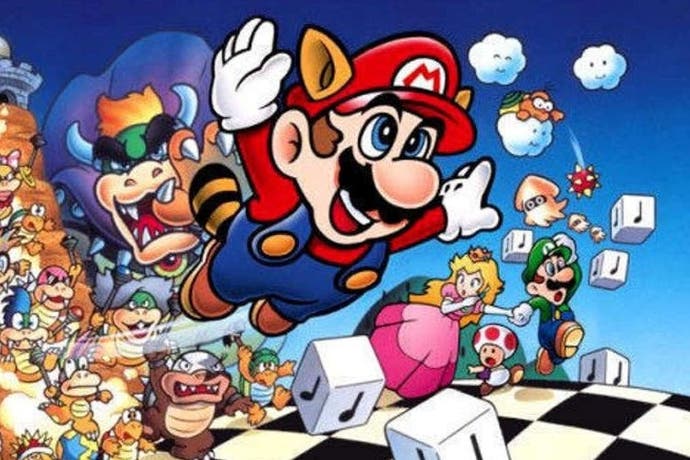Games love rules - but don't forget the rituals
One enforces - but the other compels.
Please don't tell anyone, but as the months have ticked by, I've slowly but steadily taken to starting work later in the day. Only by a few minutes, mind, but still: I have a guilty pride about those minutes - if you can feel pride and guilt at the same time, which I'm pretty sure you can.
The working day, and please add air quotes as appropriate, begins at 8 at Eurogamer, but I'm generally at my PC by 7.50 playing a certain platforming roguelike that I almost definitely reference too often in articles. I have just a single run-though in the morning, starting from the very beginning, and for a long while, it was all over briskly enough to see me sending emails by 7.55. Now, though, I'm often still playing a little past 8. It is strange for me: one of the only times I can genuinely remember getting better at a game. So novel.
The daily challenge completes Spelunky, I think. It takes a platformer that was merely one of the best games ever made, and it makes it, as far as I am concerned, the definitive greatest game of all time. What's interesting is how it does this. Spelunky is a thing of rules, but the daily challenge belongs to the world of rituals. Spelunky's creatures and items and powers control the flow of the game itself, but the daily challenge controls the flow of Spelunky within your own life. It renders it unmissable. I feel a little bit weird if I skip it. And yet it's just one game per day, so there's no danger of becoming burnt out - or strung out - like my many friends who love Destiny so much.

We talk a lot about the rules behind games, but the rituals are maybe just as important. The ritual is the rule's crazy friend, who clanks up outside your house in a luridly Moorcockian stoner van, before babbling about prayer beads, or ionocraft, or those weird tunnels below Denver Airport where the New World Order apparently has its own strip mall. Madness frequently ensues.
Rules govern what you have to do. Rituals often overlap, but I think their realm is more specifically realm of things you are compelled to do. Your expectations of rituals are both less tangible and far more grandiose. You don't necessarily expect to get a specific trinket, a level-up, or even an Achievement. You do expect the universe to notice, though, or at least you might believe that by completing your rituals you are keeping the universe ticking along nicely. Rewards here are not concrete so much as they are metaphysical. Rituals, in other words, can be as dangerous as they are wonderful.
Rituals are everywhere in games these days, often curling around rules like a creeper around a rusty windowpane. Take the process of unlocking new areas of the map in an open-world game. This was a pretty undramatic thing for a long while - a simple matter of utility - and then somebody at Ubisoft invented the Tower Principle. Suddenly, unlocking the entirety of the map became a divine compulsion: climbing those towers was just such a controlling influence on the game, it would not be ignored.

Would you have climbed all the towers if they didn't unlock the map? Unlikely. Would you have unlocked all of the map if the means of doing it was less cinematically appealing? Hard to say. The ritualisation of the process, though, brought mechanical necessity and weird human desire together in a very powerful way - so powerful that it has now spread out from Assassin's, and out from Ubisoft. We'll be climbing an awful lot of towers this generation.
I don't mind the tower thing, of course. I quite like it, particularly in Shadow of Mordor, where the towers were obliging enough to be ghostly things made of pearly light. I don't mind dozens of the little rituals that pop up - the in-game ones like organising my stash in Diablo so the items obey Roy G. Biv as much as possible, or the outside game ones, like the fact that my friend had to hide the box to Mario 3 when he played because he thought Mario himself was judging him. (In his defence, we were young back then.)
Where it gets a bit icky is when canny developers manage to weaponise the private ritual and throw money or time into the mix, when a pay-to-play game, say, hits you up for cash at that magical interval where it all starts to have a pleasant rhythm to it, or when the energy shutters come down to interrupt a call-and-response relationship you've been drawn into.
Forget pay-to-play stuff, in fact: MMOs like Destiny are perfectly capable of establishing appointment gaming that can intrude where it really shouldn't, and where ritual eats away at your other commitments or your dignity. I even went a bit far on Animal Crossing a few times. Wisp has a lot to answer for - I used to stay up late long past the point where he could have helped me with the weeding. But I still love him.
I re-read Gormenghast last year, and something really stuck with me. Mervyn Peake's sadly incomplete series is kind of an anti-Lord of the Rings (although it's also, inevitably, so much more): at the heart of it is the vision of a world in which history has crumbled away, and all that's left are the rituals, endlessly roping their caretakers into spirals of toil, spirals of wonder. There's a moment, I think, where Titus has to spend his morning carrying a glass of water up and down some stairs even though nobody can remember why. It's funny, but it's also sort of grotesque.
Games have rules, and that will never change, but games are so much more than that, too - and some of the other parts can be dangerously intoxicating.

